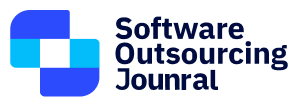
Brands That Love Us

How Can Custom Healthcare Software Help?
Healthcare software solutions are instrumental in streamlining medical services, thereby enhancing operational efficiency and patient care. Secure applications and online platforms facilitate efficient management of patient records, seamless transactions, and access to personalized insights by healthcare providers. AI-driven healthcare apps, exemplified by real-time patient data analysis, empower healthcare professionals to effortlessly make informed decisions, thereby improving patient outcomes.
Why Opt For Our Services?
Elevate your healthcare operations with Ajackus' specialized custom health software development. Our expertise lies in simplifying technology, enhancing efficiency, and improving user experience for optimal performance.
- Mobile Mental Health Crisis Intervention Apps
- Teleophthalmology Vision Therapy
- Virtual Reality Biofeedback for Stress Reduction
- Automated Health Insurance Verification
- AI-driven Antimicrobial Stewardship
- Remote Rheumatology Consultations Software
- Mobile Apps for Teen Mental Health Support
- Telepharmacy Medication Packaging Services
- AI-driven Predictive Patient Admissions
- Virtual Reality Rehabilitation for Stroke Survivors
- Remote Nephrology Consultations Software
- Telestroke Follow-up Rehabilitation Programs
Why Choose Our Healthcare E-commerce Development?
Our software engineers focus on systematic upgrades, user experience refinement, technical debt reduction, and competitiveness enhancement for healthcare institutions.

Immersive Virtual Reality for Pain Management
We utilize immersive virtual reality for pain management, offering therapeutic experiences to alleviate pain and enhance patient comfort.

Data-driven Maternal and Child Health Programs
We design data-driven maternal and child health programs, leveraging insights to improve prenatal care, childbirth outcomes, and postnatal support.

User-friendly Health Insurance Claim Submissions
We streamline health insurance claim submissions with user-friendly interfaces, simplifying the process for both healthcare providers and insurance companies.

Precision Medicine Integration for Oncology
We integrate precision medicine approaches in oncology, tailoring cancer treatments based on individual genetic profiles for improved efficacy.
What our Clients are Saying

23 Reviews

FAQs
Miscommunication and information asymmetry are often hurdles in traditional healthcare settings. Health-tech applications like patient portals, telehealth platforms, and AI-powered chatbots can facilitate clearer communication and education. Interactive and visual representations of medical data can improve patient understanding of diagnoses, treatment options, and potential risks. This enhanced communication fosters trust, empowers patients to make informed decisions, and ultimately improves healthcare outcomes.
High healthcare costs and limited access to specialists burden many individuals and communities. Telehealth platforms can connect patients with specialists regardless of location, reducing travel costs and geographic barriers. Open-source health-tech solutions and affordable wearables can offer essential health monitoring and educational resources even in resource-limited settings. Addressing the digital divide through internet access initiatives and digital literacy programs is crucial for ensuring equitable access to these advancements.
Medication adherence is often suboptimal, leading to treatment failure and increased healthcare costs. Smart pillboxes with reminders, digital adherence tracking systems, and gamified medication management apps can all contribute to improved compliance. Integrating these tools with telemedicine platforms allows healthcare providers to remotely monitor and intervene if needed. By addressing the factors contributing to non-adherence, health-tech can significantly improve treatment effectiveness and patient outcomes.
AI algorithms hold immense potential in healthcare, but concerns regarding bias, explainability, and data privacy persist. Rigorous testing and oversight are crucial to mitigate bias and ensure fairness in AI-driven decision-making. Healthcare providers need transparent and understandable explanations of AI-powered recommendations to build trust with patients. Maintaining data privacy and security throughout the AI development and implementation process is paramount in upholding patient trust and ethical considerations.
While convenient, constant health monitoring through wearables raises questions about privacy, data ownership, and potential for discrimination based on health data. Individuals should have clear control over their data collection and sharing preferences. The potential for health insurance companies to utilize this data for risk assessment or premium adjustments necessitates robust regulations and ethical guidelines. Finding the balance between personalized healthcare based on real-time data and individual privacy is a crucial challenge in this realm.

















































